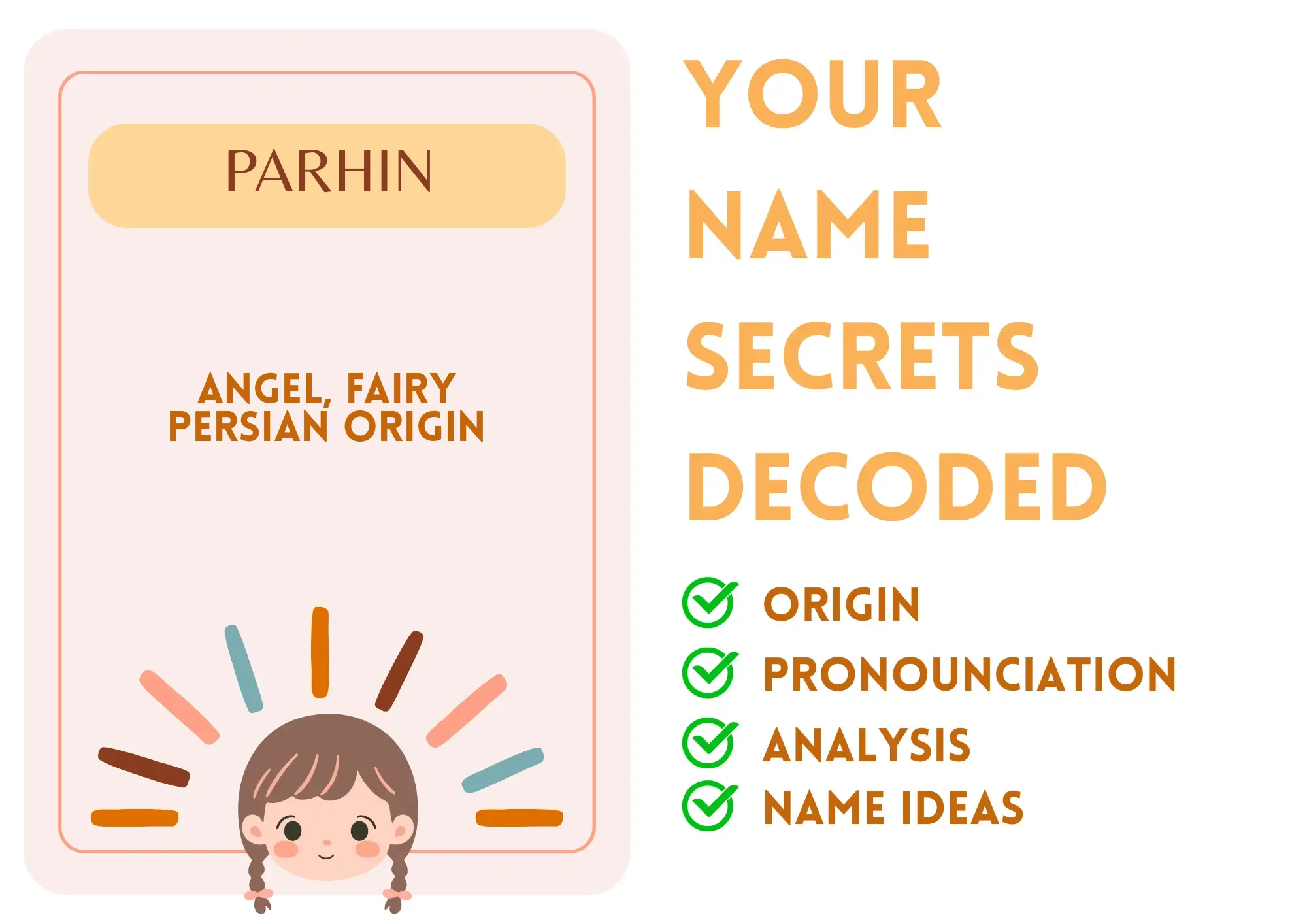
Parhin
Parhin is a beautiful name that has its roots in Persian, where it translates to ‘angel’ or ‘fairy.’ This name is primarily used in South Asian cultures, particularly within communities that appreciate Persian and Urdu influences. It is predominantly a feminine name and carries a delicate and ethereal quality that reflects kindness and grace.
In Islamic culture, which is prominent in regions where the name is used, Parhin evokes images of purity and compassion, traits commonly associated with angels. Those who choose this name for their daughters may do so with the hope that they embody the virtues of love and kindness.
Common perceptions of the name Parhin are very positive, with connotations of beauty and gentle nature. The name is easy to write and pronounce, ensuring it can be comfortably used in daily life. Common nicknames include Parhi and Hina.
In popular culture, while the name may not feature prominently in mainstream literature or film, it reflects a serene and enchanting quality that resonates within narratives of fairytales and folklore.
Basic Information
Gender: Girl
Sounds Like: par-HEEN
Pronunciation Explanation: The emphasis is on the second syllable, 'HEEN', which is pronounced like 'keen'.
Summary and Meaning
Meaning: angel, fairy (Persian origin)
Origin: The name Parhin is of Persian origin, reflecting rich cultural heritage and history within the region.
Usage: Parhin is primarily a feminine name, symbolizing grace and kindness.
Name Number (Chaldean)
Name Number (Pythagorean)
Religious and Cultural Significance
Religion: Islam
Background: In Islamic tradition, Parhin has connotations of purity and angelic characteristics, aligning with the values of compassion and grace.
Cultural Significance: Parhin possesses significant cultural importance among South Asian Muslims and is often chosen for its beautiful meaning and sound.
Historical Significance: Though not widely referenced in historical texts, the name carries ethereal qualities associated with purity and kindness, valued in Persian literature.
Popular Culture
Literature and Mythology: The name Parhin may be found in Persian poetry, where ethereal beings represent beauty and grace.
Movies and Television: Parhin is not commonly used for characters in mainstream movies but resonates with themes found in fairy tales and fantasy narratives.
Feelings and Perceptions
Perception: Parhin is perceived positively, associated with beauty, kindness, and ethereal qualities. It embodies a soft and gentle demeanor.
Positive Feelings: Beautiful, graceful, kind, dreamy, enchanting.
Negative Feelings: Might be unfamiliar to some, and the pronunciation could be misinterpreted at times.
Practical Considerations
Ease of Writing and Calling: The name Parhin is relatively simple to write and pronounce. It has six letters and two syllables, making it comfortable for both adults and children.
Common Typos and Misspellings: Parin,Parhing,Pharin,Parhene
Common Nicknames: Parhi,Hina,Parya
Compatibility Analysis
Famous Persons Named Parhin
No results found for Parhin.
Related Names
Similar Sounding Names:
Farin,Sarin,Karin,Zarin